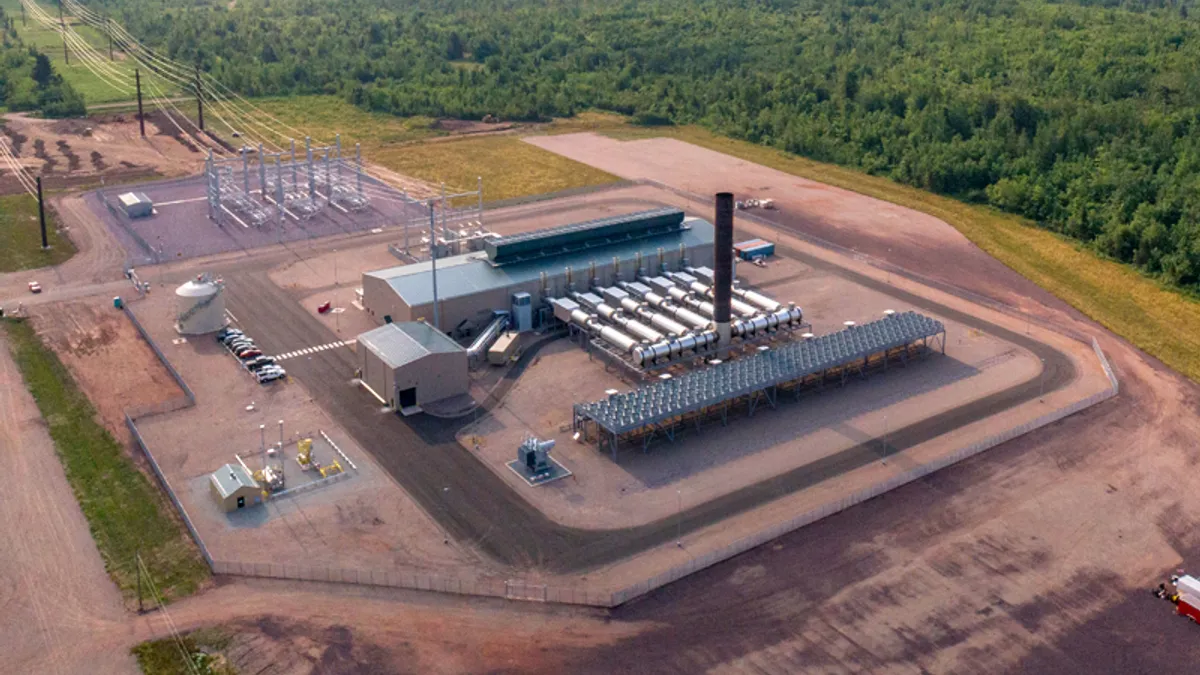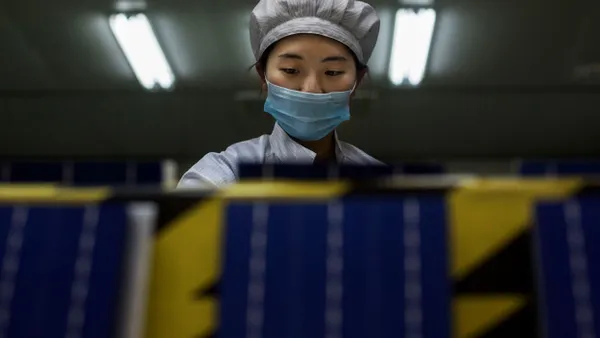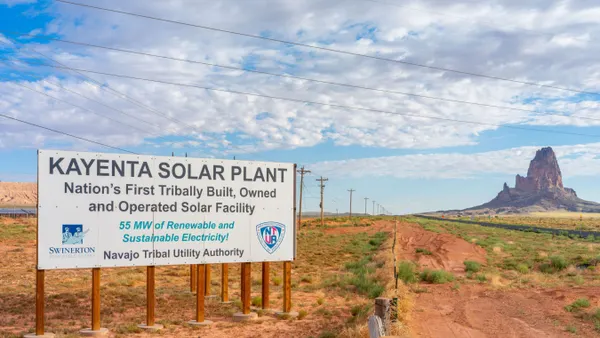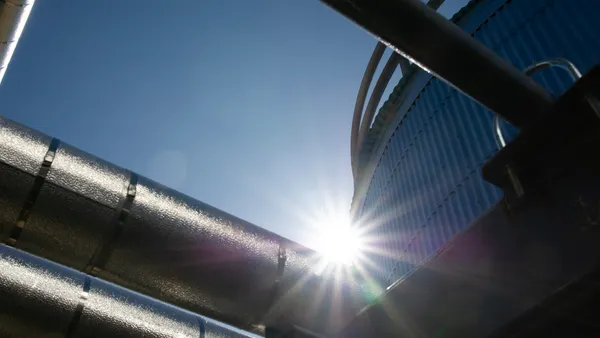Dive Brief:
- WEC Energy Group plans to fire one of its existing natural gas power plants with a natural gas-hydrogen blend in a pilot study to take place later this year, according to a Tuesday announcement by the company.
- Along with the Electric Power Research Institute (EPRI), which will lead the technical aspects of the project, WEC plans to use a 25% hydrogen blend at one of two relatively new natural gas plants located in Michigan’s Upper Peninsula.
- By determining how well the plant runs on a relatively large percentage of hydrogen, WEC and EPRI will test one of the proposed roles for green hydrogen in a decarbonized economy, as a bridge between existing natural gas power plants and carbon-free energy.
Dive Insight:
WEC Energy Group will be among the first utilities to fire a pre-existing natural gas plant with a natural gas-hydrogen blend, putting one of the hottest new theories in renewable energy to the test.
WEC plans to blend 25% hydrogen with 75% natural gas in one of the two natural gas plants that serve customers of Upper Michigan Energy Resources. The exact unit to be studied in the pilot has not yet been selected, but both use reciprocating internal combustion engines (RICE) manufactured by Wärtsilä. WEC Energy Group will fund the trial, while EPRI manages the technical details.
"Hydrogen is being studied across the globe right now in all sorts of ways," said Brendan Conway, a spokesperson for WEC Energy Group. But WEC found itself in a unique position thanks to the relatively young age of its natural gas plant in Michigan. Many newer natural gas turbines, including the engines installed at the plant in question, were designed with the potential for alternative fuels in mind. But few utilities have experimented with a hydrogen-natural gas blend in commercial settings.
The results of the study, which are due out in 2023 after the expected conclusion of the trial later this year, will help WEC and other utilities understand more about whether hydrogen represents a viable, cost-competitive solution to the need for dispatchable carbon-free electrical generation, Conway said.
"This project will use hydrogen as a fuel in a commercial RICE unit and will provide the energy industry with relevant information to support decisions on decarbonization options," Jeffery Preece, director of net-zero resources for EPRI, said in an email. "RICE units are used worldwide to produce electricity and are especially important where peaking, load balancing, ancillary services, and other flexible power resources are needed. Using a blend of clean hydrogen as a fuel with natural gas reduces CO2 emissions and the project will measure and assess multiple operational performance and environmental aspects."
Hydrogen is still a relatively expensive solution, Conway said, but WEC has taken an interest because of its potential to provide a flexible, reliable source of carbon-free energy using existing generation units.
WEC Energy Group aims to achieve net-zero carbon emissions by 2050, and net-zero methane emissions by 2030. While it should be possible to achieve the 2030 goal using present-day technology, Conway said, the need for less intermittent energy sources in the long-term remains.
"We're pleased to take a leading role in testing hydrogen in our modern natural gas fueled generation units," Gale Klappa, WEC Energy Group executive chairman, said in a statement. "As we bring more renewable energy online, we must ensure that we can keep the lights on when the sun is not shining and the wind is not blowing. The potential of adding hydrogen as a clean generating fuel to our fleet of dispatchable plants is an important step as we bridge to a bright, sustainable future."














